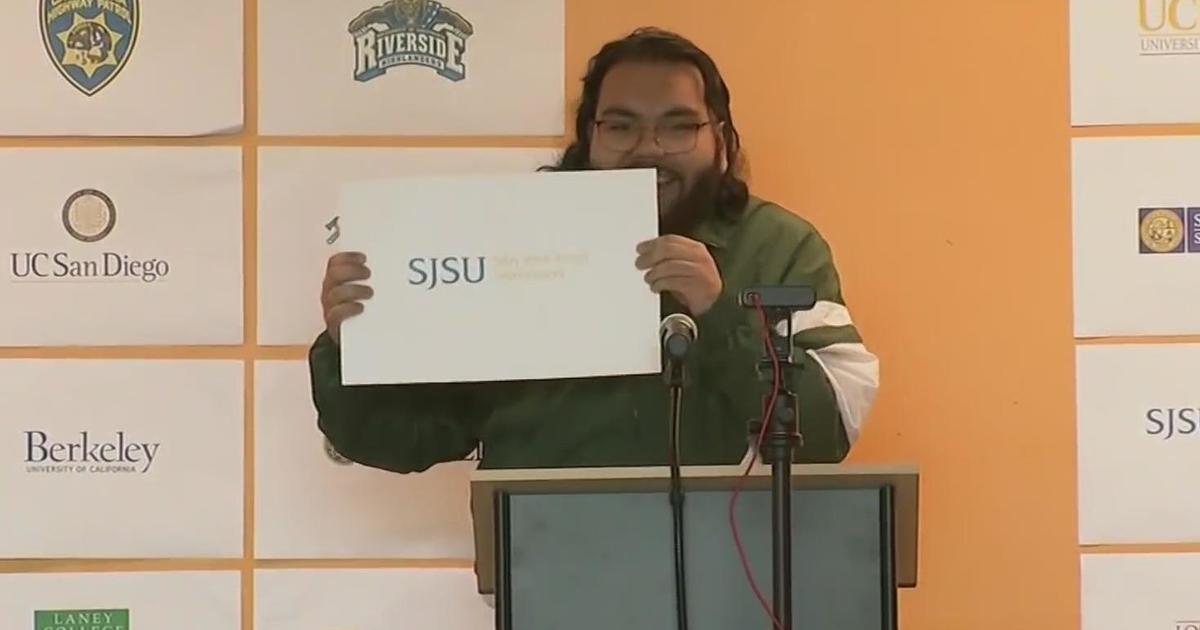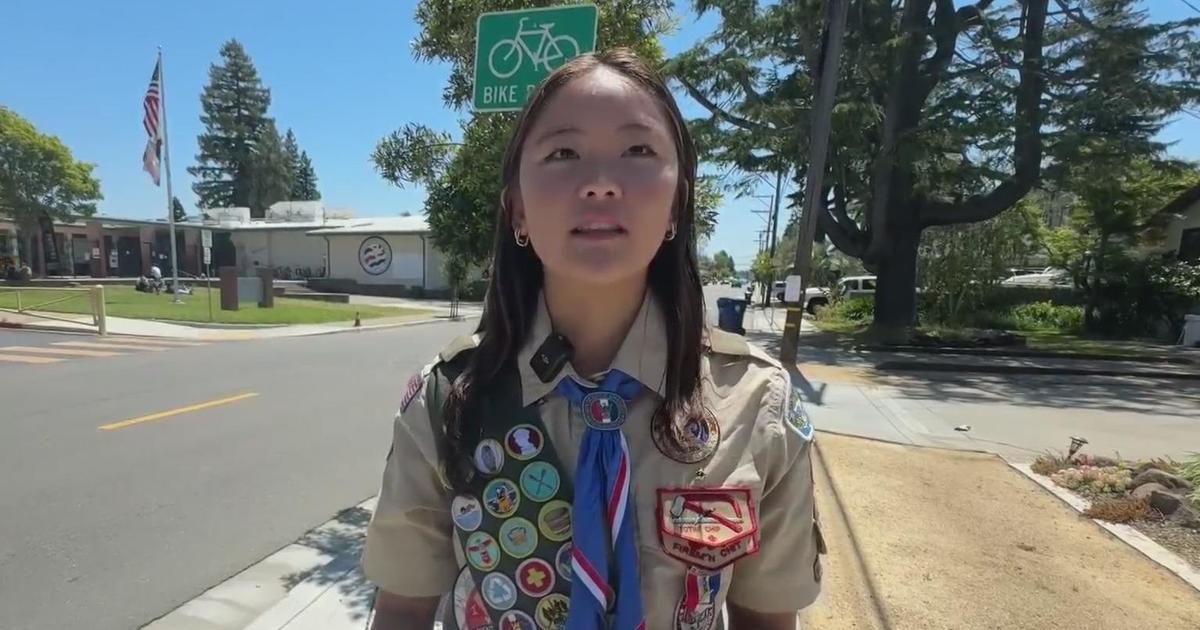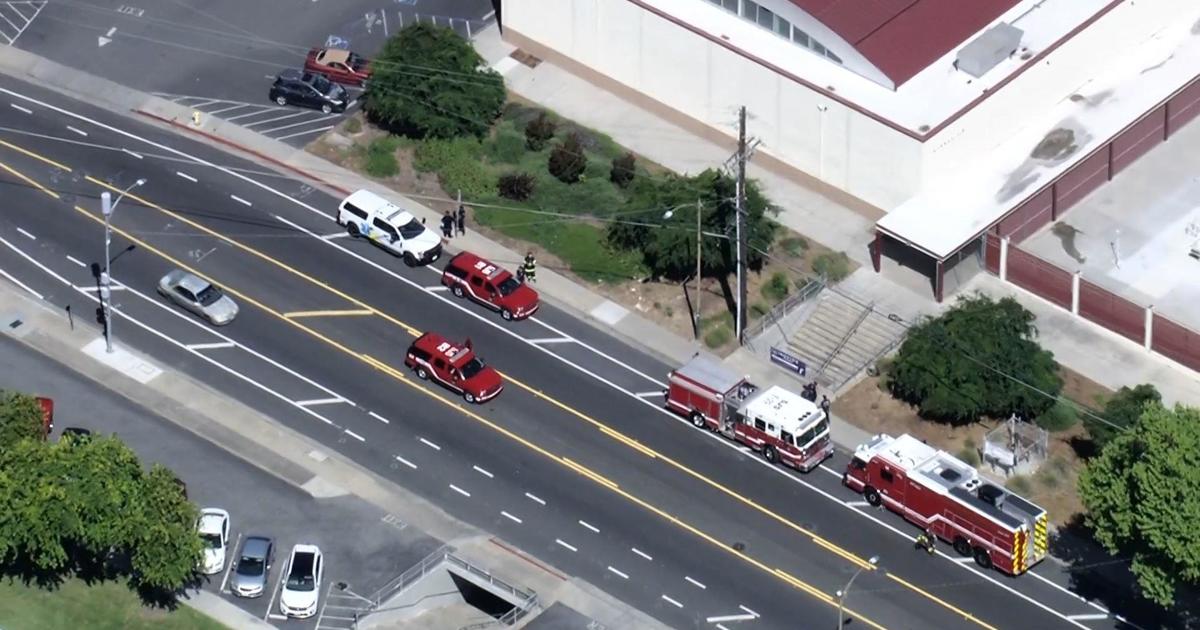Oakland Minister Offers New Rapture Date
OAKLAND (CBS News / AP) -- The Bay Area religious radio host who had predicted the world would end on May 21, 2011 said that he was "flabbergasted" when the apocalypse didn't arrive, but maintained Monday that his prophecy was simply off by five months.
Harold Camping, an 89-year-old fundamentalist minister and head of the Oakland-based Family Radio network, had led his Christian followers to believe last Saturday marked the Rapture. However, on Monday he contended that Judgment Day actually would now come on October 21.
Camping said he felt so terrible when his doomsday prediction did not come true on Saturday that he left his modest home in Alameda and took refuge in a motel with his wife.
Camping said he looked for answers - through frequent prayer and discussions with friends - as to why his prediction of the destruction of Earth had not come to pass.
"It has been really tough," said Camping, a retired civil engineer and self-taught Biblical sage.
He had predicted that Saturday would bring with it "a big earthquake that will make the one in Japan seem like a Sunday school picnic," claiming it would first strike Fiji and New Zealand, then work its way around the world.
Camping marketed his prophecy around the world through radio broadcasts in 84 languages, on RV caravans and on 1,200 billboards around the country.
Trumpeting the apocalypse didn't come cheap either. Family Radio spent as much as $1 million on the billboard campaign, but it could afford to. Camping's radio network has been valued at more than $117 million.
Some of Camping's followers said they were surprised they were not swept up to heaven, after Camping had preached for years through his radio empire that the Rapture was coming on May 21.
Herbert Walker, 66, had been convinced by his daily readings of the Bible and Camping's prediction that Saturday would've seen God bring chosen souls into heaven before a cataclysmic worldwide tribulation.
He was disappointed when that didn't happen, he said, but planned to keep praying regularly in hopes that one day he'll be counted among the saved. While he said his faith remained unshaken by the faulty prediction, Walker added that for now, he's done with believing predictions.
"I'm still faithful to the Bible, because the Bible is the only word of God," he said. "We can trust what the Bible says, not what men say."
Camping had previously predicted the Rapture would occur back in 1994. When it didn't, he explained that an error in his mathematical computations from clues in the Bible were to blame, and he later revised his forecast.
Along with the disappointment, believers who spent their savings to advertise the world's end were now facing more earthly concerns.
"I've been mocked and scoffed and cursed at and I've been through a lot," said Jeff Hopkins, 52, a former television producer who drove for days with a lighted sign proclaiming the end of the world on top of his car. "I was doing what I've been instructed to do through the Bible, but now I've been stymied. It's like getting slapped in the face."
Robert Fitzpatrick said he was surprised when the six o'clock hour simply came and went on Saturday. He too had spent his own money to put up advertising about the end of the world.
"I can't tell you what I feel right now," he said. "Obviously, I haven't understood it correctly because we're still here."
Many followers said the delay was a further test from God to persevere in their faith.
"When you say something and it doesn't happen, your pride is what's hurt. But who needs pride? God said he resists the proud and gives grace to the humble," said Family Radio's special projects coordinator Michael Garcia, who had spent Saturday praying and drinking two last cups of coffee with his wife at home in Alameda.
Garcia added that he believed the delay was God's way of separating true believers from those willing to doubt what he said were clear biblical warnings.
"Maybe this had to happen for there to be a separation between those who have faith and those who don't," he said. "It's highly possible that our Lord is delaying his coming."
Gunther Von Harringa, who heads a religious organization that produces content for Camping's media enterprise, said he too was "very surprised" the Rapture did not happen as predicted, but noted that he and other believers were in good spirits.
"It hasn't shaken my faith, and we're still searching the Scriptures to understand why it did not happen," said Von Harringa, president of EBible Fellowship, which he operates from his home. "It's just a matter of OK, Lord, where do we go from here?"
Apocalyptic thinking has always been part of American religious life and popular culture. Teachings about the end of the world vary dramatically — even within faith traditions — about how they will occur.
Still, the overwhelming majority of Christians reject the idea that the exact date or time of Jesus' return can be predicted.
Tim LaHaye, co-author of the best-selling "Left Behind" novels about the end times, recently called Camping's prediction "not only bizarre but 100 percent wrong!" He cited the bible verse Matthew 24:36, 'but about that day or hour no one knows" except God.
"While it may be in the near future, many signs of our times certainly indicate so, but anyone who thinks they 'know' the day and the hour is flat out wrong," LaHaye wrote on his Web site, leftbehind.com.
(© 2011 CBS Interactive Inc. All Rights Reserved. This material may not be published, broadcast, rewritten, or redistributed. The Associated Press contributed to this report.)



